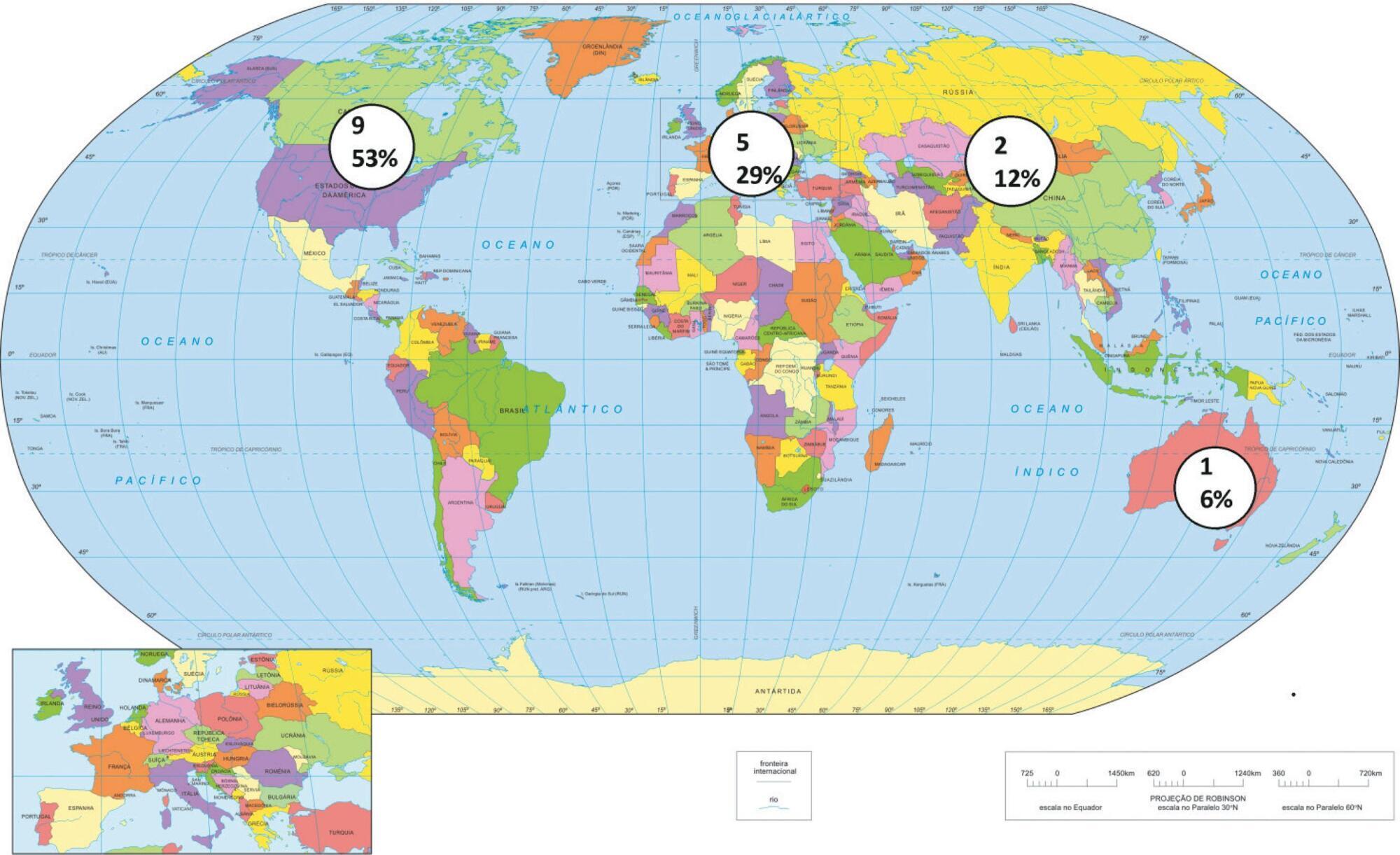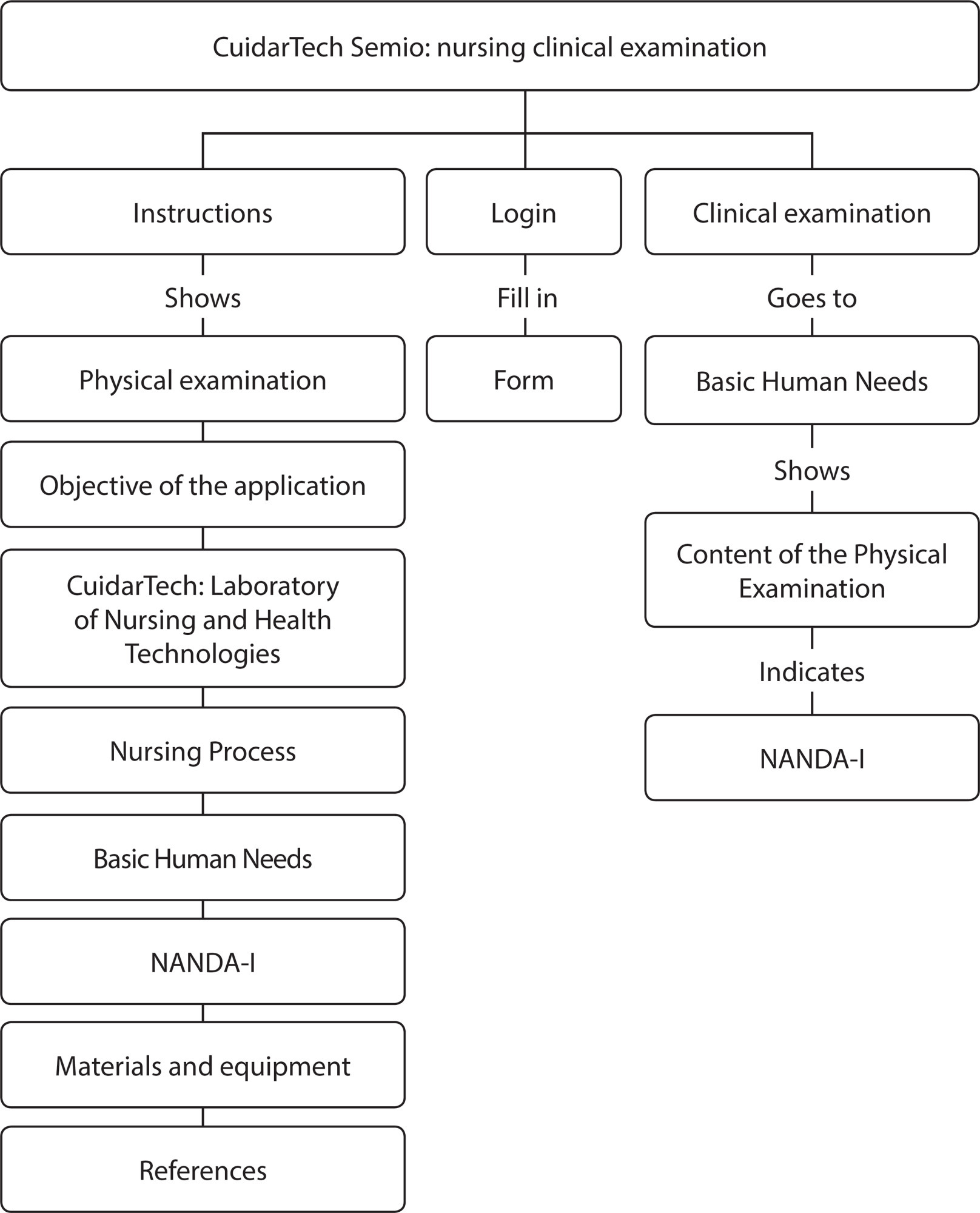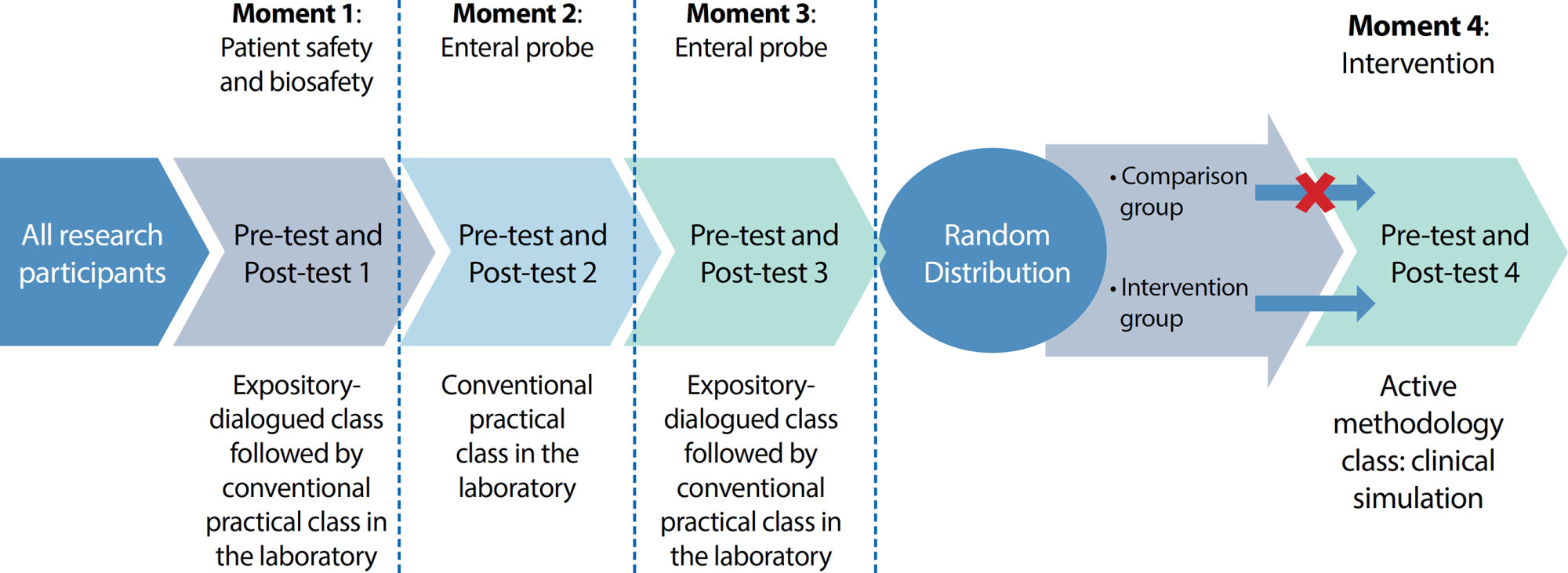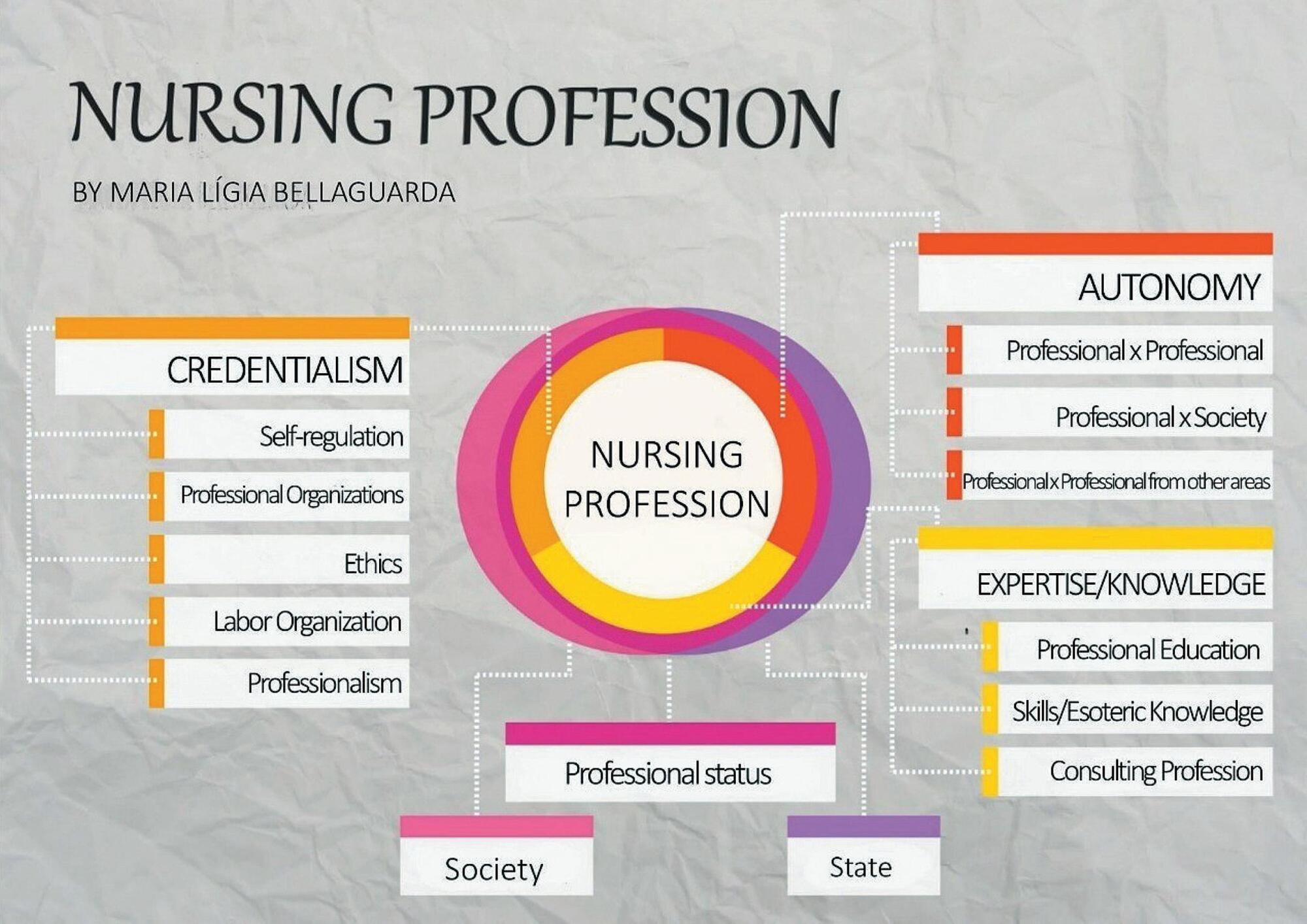-
RESEARCH
Learning Incubator: an instrument to foster entrepreneurship in Nursing
Revista Brasileira de Enfermagem. 2015;68(6):1103-1108
01-01-2015
Abstract
RESEARCHLearning Incubator: an instrument to foster entrepreneurship in Nursing
Revista Brasileira de Enfermagem. 2015;68(6):1103-1108
01-01-2015DOI 10.1590/0034-7167.2015680615i
Views0See moreABSTRACT
Objective:
this study aimed to know the contributions of the Learning Incubator to the process of lifelong education in health.
Method:
this is a qualitative field research whose data was collected from August to December 2014 by the focus group technique. The research had 34 employees of a Teaching Hospital in the central region of the state of Rio Grande do Sul that participated previously in the incubation process.
Results:
from the data encoded by content analysis, three themes were selected: Learning Incubator – welcoming and integrating space; An instigating instrument that enhances possibilities; Continuous and lifelong education strategy.
Conclusion:
the Learning Incubator is an important instrument to foster entrepreneurship in nursing and other health areas due to its capacity of rethinking mechanized practices, to the possibility of instigating new ways of being and acting, and to the ability of creating and developing new ideas based on individual and institutional needs.
-
RESEARCH
Non-pharmacological strategies to decrease anxiety in cardiac catheterization: integrative review
Revista Brasileira de Enfermagem. 2015;68(6):1093-1102
01-01-2015
Abstract
RESEARCHNon-pharmacological strategies to decrease anxiety in cardiac catheterization: integrative review
Revista Brasileira de Enfermagem. 2015;68(6):1093-1102
01-01-2015DOI 10.1590/0034-7167.2015680614i
Views0See moreABSTRACT
Objective:
to identify and review the literature on non-pharmacological strategies used for reducing anxiety in patients receiving cardiac catheterization.
Method:
this study was an integrative literature review. The research was conducted using the databases LILACS, SciELO, Medline (through BVS and PubMed) and Scopus. Studies were analyzed according to their objective, method, instruments used for evaluating patients’ anxiety, and the results obtained.
Results:
the most used strategy for reducing anxiety in patients receiving cardiac catheterization was music therapy. However, no study identifying the most appropriate time for this intervention (before, during and/or after the procedure) was found. Other strategies identified in this review were educational videos, massage, and palm therapy.
Conclusion:
the results found suggest that anxiety can be reduced using non-pharmacological strategies.

-
RESEARCH
Estratégias não farmacológicas para diminuição da ansiedade no cateterismo cardíaco: revisão integrativa
Revista Brasileira de Enfermagem. 2015;68(6):1093-1102
01-01-2015
Abstract
RESEARCHEstratégias não farmacológicas para diminuição da ansiedade no cateterismo cardíaco: revisão integrativa
Revista Brasileira de Enfermagem. 2015;68(6):1093-1102
01-01-2015DOI 10.1590/0034-7167.2015680614i
Views0See moreRESUMEN
Objetivo:
identificar y revisar los estudios de literatura que abordan las estrategias no farmacológicas utilizadas para reducir la ansiedad en los pacientes que reciben un cateterismo cardíaco.
Método:
revisión integradora. La investigación se llevó a cabo utilizando las bases de datos LILACS, SciELO, Medline (BVS y PubMed) y Scopus. Los estudios se analizaron de acuerdo con sus objetivos, la metodo, los instrumentos utilizados para la evaluación de la ansiedad de los pacientes, y los resultados obtenidos.
Resultados:
la estrategia dirigida más para reducir la ansiedad en los pacientes que recibieron cateterización cardíaca fue la musicoterapia. No se encontró estudio, sin embargo, identificando el momento más adecuado para esta intervención (antes, durante y / o después de este procedimiento). Otras estrategias identificados en esta revisión eran videos educativos, masajes y terapia de palma.
Conclusión:
los resultados sugieren que la ansiedad se puede reducir el uso de estrategias no farmacológicas.
-
RESEARCH
Convergence, divergence and diagnostic accuracy in the light of two nursing terminologies
Revista Brasileira de Enfermagem. 2015;68(6):1086-1092
01-01-2015
Abstract
RESEARCHConvergence, divergence and diagnostic accuracy in the light of two nursing terminologies
Revista Brasileira de Enfermagem. 2015;68(6):1086-1092
01-01-2015DOI 10.1590/0034-7167.2015680613i
Views0See moreABSTRACT
Objective:
compare divergences and convergences between the nursing diagnoses established for a case study, in the light of two nursing terminologies.
Method:
a descriptive research was undertaken. The participants were 24 nurses from public teaching hospitals (N=12) and hospital care institutions (N=12) in the Northeast of Brazil.
Results:
in group A (6 faculty members and 6 clinical professionals), 51 diagnoses were established according to NANDA-I: 54.9% of high accuracy, 23.5% zero, 15.7% low and 5.9% moderate accuracy. In group B (6 faculty members and 6 clinical professionals), 43 declarations were established using the ICNP®: 44.2% of zero accuracy, 39.5% high, 16.3% low. Four out of fi ve diagnostic titles of high accuracy in group A and the seven titles in group B converged; divergences were attributed to the number of combinations among the focus, judgment and location axes of the ICNP®.
Conclusion:
a range of titles was observed with different diagnostic inferences and low diagnostic accuracy in both groups.
-
RESEARCH
Speeches of managers about the policy of the directly observed treatment for tuberculosis
Revista Brasileira de Enfermagem. 2015;68(6):1069-1077
01-01-2015
Abstract
RESEARCHSpeeches of managers about the policy of the directly observed treatment for tuberculosis
Revista Brasileira de Enfermagem. 2015;68(6):1069-1077
01-01-2015DOI 10.1590/0034-7167.2015680611i
Views0See moreABSTRACT
Objective:
to analyze the managers’ speeches about the policy transfer of the directly observed treatment (DOT) for tuberculosis control in the city of João Pessoa, Paraíba, Brazil.
Method:
this is a qualitative study developed in May and June, 2013 through semi-directed interviews with twenty health professionals in five health districts in João Pessoa/PB. The empirical material produced was analyzed according to the theoretical-analytical basis of the French Discourse Analysis by Pêcheux.
Results:
the study demonstrated weaknesses in the conduction and organization of actions in relation to the DOT. It revealed that the lack of knowledge of the managers about this policy has direct implications to the care of tuberculosis patients.
Conclusion:
the management should trace strategic plans to rethink the care practices and thus, reorganize the entire care network to users in order to effectively contribute to user adherence in the fight against tuberculosis.
-
RESEARCH
Women’s temporality after cardiac surgery: contributions to nursing care
Revista Brasileira de Enfermagem. 2015;68(6):1056-1062
01-01-2015
Abstract
RESEARCHWomen’s temporality after cardiac surgery: contributions to nursing care
Revista Brasileira de Enfermagem. 2015;68(6):1056-1062
01-01-2015DOI 10.1590/0034-7167.2015680609i
Views0See moreABSTRACT
Objective:
to unveil women’s existential movement after cardiac surgery.
Method:
qualitative phenomenological study. The research setting was a hospital in Minas Gerais, in which ten women were interviewed between December 2011 and January 2012.
Results:
after hospital discharge, the women experienced physical, social and emotional impairments, and expressed the desire to go back to the time before their diagnosis, because they felt as though they still had heart disease. This vague and average understanding led to three units of meaning that, from a Heideggerian hermeneutic point of view, revealed the phenomenon of cardiac surgery as a present circumstance that limited the participants’ daily lives.
Conclusion:
nurses supporting women patients after cardiac surgery should promote health considering existential facets that are expressed during care. The bases for comprehensive care are revealed in singular and whole meetings of subjectivity.
-
REVIEW
Mental health interventions implemented in the COVID-19 pandemic: what is the evidence?
Revista Brasileira de Enfermagem. 2021;74:e20200635
06-11-2021
Abstract
REVIEWMental health interventions implemented in the COVID-19 pandemic: what is the evidence?
Revista Brasileira de Enfermagem. 2021;74:e20200635
06-11-2021DOI 10.1590/0034-7167-2020-0635
Views0See moreABSTRACT
Objective:
to map the evidence on mental health interventions implemented during the COVID-19 pandemic.
Method:
this scoping review was carried out in the MEDLINE/PubMed, SCOPUS, Web of Science, PsycINFO, and Science Direct databases and in the medRxiv, bioRxiv, and PsyArXiv preprints servers using the descriptors “Covid-19”, “coronavirus infection”, “coronavirus”, “2019-nCoV”, “2019 novel coronavirus disease”, “SARS-CoV-2”, “health personnel”, “general public”, and “mental health”.
Results:
eight articles were selected and categorized into mental health interventions for the population, among which mental health interventions were for people diagnosed with suspicion/confirmed COVID-19 and mental health interventions for health professionals.
Conclusion:
telemonitoring, virtual games and strategies focused on social support and muscle relaxation techniques, characterized as non-pharmacological and low-cost, were shown as interventions, which, since they are effective, need to be encouraged and included in mental health care practices.

-
Nursing performance in robotic surgeries: integrative review
Revista Brasileira de Enfermagem. 2019;72(3):795-800
06-07-2019
Abstract
Nursing performance in robotic surgeries: integrative review
Revista Brasileira de Enfermagem. 2019;72(3):795-800
06-07-2019DOI 10.1590/0034-7167-2018-0426
Views0ABSTRACT
Objective:
To know the scientific production on the performance of the nursing staff in robotic surgeries, identifying the role of the nurse in the three perioperative periods.
Methods:
Integrative review, search in the databases National Library of Medicine, National Institutes of Health, Scientific Electronic Library Online and Biblioteca Virtual em Saúde, performed from June to September, 2017; 17 selected articles met the inclusion criteria.
Results:
Most articles were published in foreign journals in English, nine in the United States, classified with evidence level of 4 and 5. The role of nursing in the perioperative period was identified, related mainly to patient safety. The most mentioned perioperative period in the articles was the intraoperative, with greater concern in the positioning of the patient.
Conclusion:
The nursing performance and patient safety in robotic surgeries are similar to the ones in major surgeries, requiring from the patient a specific knowledge on the setting and preparation of the robot.
Keywords:Nurse's RolePerioperative NursingRoboticsSurgical Procedures, OperativeTechnological DevelopmentSee more
-
ORIGINAL ARTICLE
“Waiting for a miracle”: Spirituality/Religiosity in coping with sickle cell disease
Revista Brasileira de Enfermagem. 2019;72(6):1554-1561
10-21-2019
Abstract
ORIGINAL ARTICLE“Waiting for a miracle”: Spirituality/Religiosity in coping with sickle cell disease
Revista Brasileira de Enfermagem. 2019;72(6):1554-1561
10-21-2019DOI 10.1590/0034-7167-2018-0635
Views0See moreABSTRACT
Objective:
To understand spirituality/religiosity as experienced by people with sickle cell disease, and its influence on coping with the disease.
Method:
A qualitative, descriptive, and exploratory study conducted in the State of Bahia. Twenty-nine respondents participated in semi-structured interviews. Content analysis was used to analyze the empirical material.
Results:
Individuals with sickle cell disease experience spirituality/religiosity motivated by their hope for a miracle, and fear of death; among their rites are: reading religious materials, individual and group prayer, and attendance at worship services. The effects on their health include: comfort by means of coping by comparing two evils, anxiety relief, social support, and lifestyle changes; however, spirituality/religiosity may be impaired.
Final considerations:
This study demonstrates the need to qualify health professionals to address spiritual issues of these individuals during illness, with the aims of diagnosing suffering and anguish, and providing care, comfort and strengthening of the spiritual bonds of these individuals.
-
ORIGINAL ARTICLE
Construction and validation of a mobile application for development of nursing history and diagnosis
Revista Brasileira de Enfermagem. 2020;73:e20190674
12-21-2020
Abstract
ORIGINAL ARTICLEConstruction and validation of a mobile application for development of nursing history and diagnosis
Revista Brasileira de Enfermagem. 2020;73:e20190674
12-21-2020DOI 10.1590/0034-7167-2019-0674
Views0ABSTRACT
Objectives:
to describe the construction and validation process for a mobile application for development of the nursing history and diagnosis.
Methods:
methodological study conducted in 2018 in three stages: content creation, based on the Basic Human Needs categories and nursing diagnoses; content assessment by nine nursing judges, with calculation of the content validity index; and construction of the application, which included definition of the requirements, a conceptual map, implementation and prototyping options, tests and implementation.
Results:
the application was organized by sections: Grouped Basic Human Needs, Cranial pair tests, Clinical assessment scales and Additional tests. Two section were adjusted according to the judges’ suggestions.
Final Considerations:
it is the first application produced in Brazil based on the Basic Human Need categories, which enables quick access to information, concepts and typical nomenclatures of semiology, recording of clinical data and definition of nursing diagnoses.
Keywords:Educational TechnologyMobile ApplicationsNursing InformaticsNursing ProcessPhysical ExaminationSmartphoneSee more
-
ORIGINAL ARTICLE
Factors associated with vulnerability and fragility in the elderly: a cross-sectional study
Revista Brasileira de Enfermagem. 2022;75(2):e20200399
10-01-2022
Abstract
ORIGINAL ARTICLEFactors associated with vulnerability and fragility in the elderly: a cross-sectional study
Revista Brasileira de Enfermagem. 2022;75(2):e20200399
10-01-2022DOI 10.1590/0034-7167-2020-0399
Views0See moreABSTRACT
Objectives:
to assess factors associated with vulnerability and fragility in the elderly.
Methods:
crosssectional study with 384 elderly people in Fortaleza, Ceará. The Vulnerable Elders Survey and Clinical-Functional Vulnerability Index – 20 were used. Chi-square and Fisher’s exact tests were used for associations. In the analysis of the combined influence of risk factors, the stepwise logistic regression and multinomial regression methods were adopted.
Results:
251 (65.4%) non-vulnerable and 133 (34.6%) vulnerable elders. From the vulnerable elders analyzed, 42 (30.9%) are at high risk for frailty. Factors associated with vulnerability: age, gender, presence of comorbidities, hypertension, diabetes, osteoporosis and use of polypharmacy. There is a 30% increase in the chance of vulnerability for each additional drug. Physical activity reduces the chance of vulnerability by 60%. Factors associated with frailty: educational level; self-perception of health; comorbidities; polypharmacy.
Conclusions:
it is important to pay attention to the presence of arterial hypertension, osteoporosis, polypharmacy, and encourage the practice of physical activity.
-
ORIGINAL ARTICLE
Caring ability, burden, stress and coping of family caregivers of people in cancer treatment
Revista Brasileira de Enfermagem. 2019;72(6):1541-1546
10-21-2019
Abstract
ORIGINAL ARTICLECaring ability, burden, stress and coping of family caregivers of people in cancer treatment
Revista Brasileira de Enfermagem. 2019;72(6):1541-1546
10-21-2019DOI 10.1590/0034-7167-2018-0605
Views0See moreABSTRACT
Objective:
To analyze the association between the caring ability and the burden, stress and coping of family caregivers of people in cancer treatment.
Method:
A cross-sectional study with 132 family caregivers. The following instruments were applied: a characterization instrument, the Caring Ability Inventory, the Zarit Burden Interview, the Perceived Stress Scale, and the Brief COPE. The Spearman Correlation was used with significance ≤5%.
Results:
There were significant and positive correlations between total caring ability and: burden – interpersonal relationship (p=0.03); stress (p=0.02) and maladaptive coping (p=0.00); and inversely proportional correlations with problem-focused coping (p=0.03). The courage had inversely proportional correlation with: self-efficacy (p=0.03), interpersonal relationship (p=0.00), stress (p=0.04) and maladaptive coping (p=0.00). The knowledge had significant and positive correlation with problem-focused coping (p=0.00), adaptive coping (p=0.01), and inverse correlation with stress (p=0.02).
Conclusion:
The level of caring ability correlates with levels of stress and burden, and with the type of coping strategy used by family caregivers.
-
ORIGINAL ARTICLE
Clinical simulation as a Nursing Fundamentals teaching method: a quasi-experimental study
Revista Brasileira de Enfermagem. 2022;75(2):e20201155
10-18-2022
Abstract
ORIGINAL ARTICLEClinical simulation as a Nursing Fundamentals teaching method: a quasi-experimental study
Revista Brasileira de Enfermagem. 2022;75(2):e20201155
10-18-2022DOI 10.1590/0034-7167-2020-1155
Views0See moreABSTRACT
Objectives:
to evaluate students’ knowledge gain after the implementation of clinical simulation in Nursing Fundamentals disciplines.
Methods:
a quasi-experimental intervention was carried out with 60 students, distributed in comparison and intervention groups, who underwent traditional teaching and traditional teaching associated with simulated teaching, respectively. Pre-test and post-test instruments were applied to both groups.
Results:
after analyzing the students’ performance through the applied instruments, both groups had a cognitive evolution along with the taught content, however, when compared, the intervention group obtained a higher knowledge gain than the comparison group (p = 0.016), demonstrating progressive and increasing improvement with the use of the methodology.
Conclusions:
simulated teaching significantly helps students in gaining technical-cognitive knowledge. Therefore, it is recommended to adhere to the use of this methodology for teaching Nursing Fundamentals.

-
ORIGINAL ARTICLE
Eliot Freidson’s sociology of professions: an interpretation for Health and Nursing
Revista Brasileira de Enfermagem. 2020;73(6):e20180950
08-10-2020
Abstract
ORIGINAL ARTICLEEliot Freidson’s sociology of professions: an interpretation for Health and Nursing
Revista Brasileira de Enfermagem. 2020;73(6):e20180950
08-10-2020DOI 10.1590/0034-7167-2018-0950
Views0See moreABSTRACT
Objectives:
to analyze theoretical conceptions of Eliot Freidson’s Sociology of Professions scoped on health and nursing professions.
Methods:
Eight nurses were interviewed, all involved in the development of the professional Council on the timeframe from 1975 to 1986. Documental resources were Laws, Ordinances, Resolutions, Reports, Meeting Minutes and Public Deeds. Information was organized as from literature and Eliot Freidson’s conceptions, and thematic content analysis was carried out.
Results:
the concepts authored by Eliot Freidson allowed for the development of a concept chart that portrays the nursing profession and that may be expanded for the other occupations in the health field, in consonance with professional organization in the country.
Final Considerations:
Eliot Freidson’s framework, in interpretation for nursing, consolidates the profession with relative autonomy, expertise by Nursing Care Systematization and credentialism by professional normalizations.

Search
Search in:
Nuvem de Tags
Aged (144) Atenção Primária à Saúde (239) COVID-19 (104) Cuidados de Enfermagem (269) Educação em Enfermagem (151) Educação em Saúde (139) Enfermagem (930) Estudos de Validação (131) Health Education (144) Idoso (208) Mental Health (149) Nursing (987) Nursing Care (306) Patient Safety (151) Primary Health Care (284) Qualidade de Vida (104) Quality of Life (106) Saúde Mental (145) Segurança do Paciente (150) Validation Studies (108)




